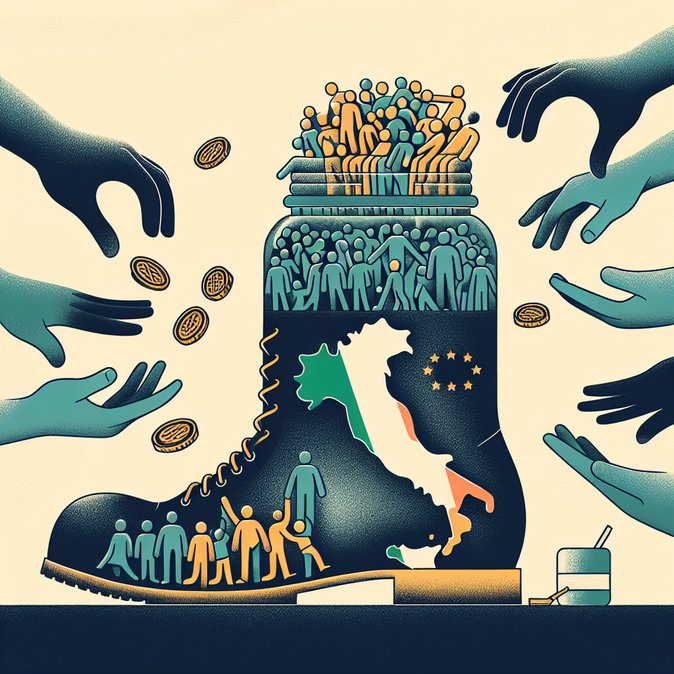
The European Commission on 12 November launched the inaugural Annual Migration Management Cycle required by the new Pact on Migration and Asylum, publishing a European Annual Asylum and Migration Report that classifies Cyprus, Greece, Italy and Spain as Member States facing “disproportionate” migratory pressure.
The designation triggers the creation of a 2026 “solidarity pool” through which other EU countries must either relocate asylum seekers from the hotspot states or pay financial contributions. Hard-line governments in Poland, Hungary and Slovakia immediately signalled they will challenge the mechanism, raising the prospect of legal battles that could delay relief for Italy’s crowded reception system.
![EU Names Italy ‘Under Migratory Pressure’ in First Annual Migration Management Cycle]()
For employers, the report offers early insight into how the EU intends to allocate resources and could influence the staffing levels at Italian Questure and asylum commissions. Faster EU funding may indirectly reduce backlogs for family-reunification and work-permit appointments by freeing up administrative capacity currently diverted to reception duties.
Mobility teams should track Council negotiations on the solidarity pool: if relocation numbers fall short, Italy could extend its internal border checks beyond the current 18 December deadline, prolonging spot-controls on trains and roads from Slovenia and France.
Companies with operations in multiple EU states should also monitor whether their host countries opt for financial or relocation solidarity, as this may affect public attitudes toward migration and, by extension, political support for business-friendly immigration channels.
The designation triggers the creation of a 2026 “solidarity pool” through which other EU countries must either relocate asylum seekers from the hotspot states or pay financial contributions. Hard-line governments in Poland, Hungary and Slovakia immediately signalled they will challenge the mechanism, raising the prospect of legal battles that could delay relief for Italy’s crowded reception system.

For employers, the report offers early insight into how the EU intends to allocate resources and could influence the staffing levels at Italian Questure and asylum commissions. Faster EU funding may indirectly reduce backlogs for family-reunification and work-permit appointments by freeing up administrative capacity currently diverted to reception duties.
Mobility teams should track Council negotiations on the solidarity pool: if relocation numbers fall short, Italy could extend its internal border checks beyond the current 18 December deadline, prolonging spot-controls on trains and roads from Slovenia and France.
Companies with operations in multiple EU states should also monitor whether their host countries opt for financial or relocation solidarity, as this may affect public attitudes toward migration and, by extension, political support for business-friendly immigration channels.


